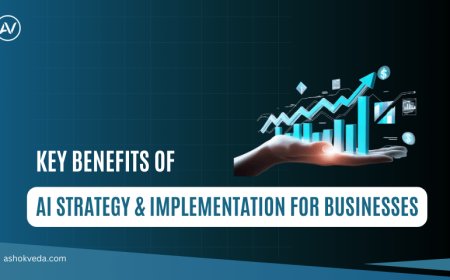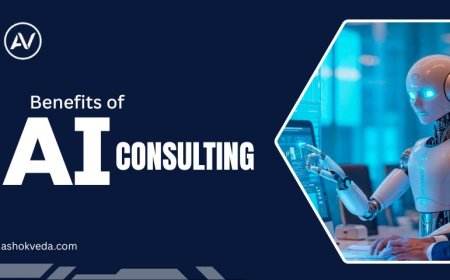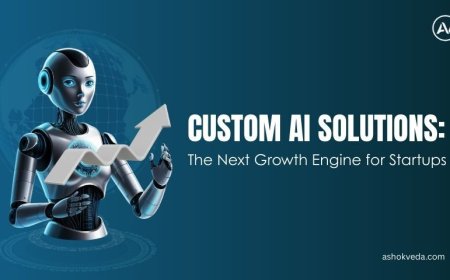Exploring the Scalability of AI Consulting Solutions
Explore the scalability of AI consulting solutions in 2025. Learn about the factors influencing scalability, benefits, challenges, and best practices for implementation
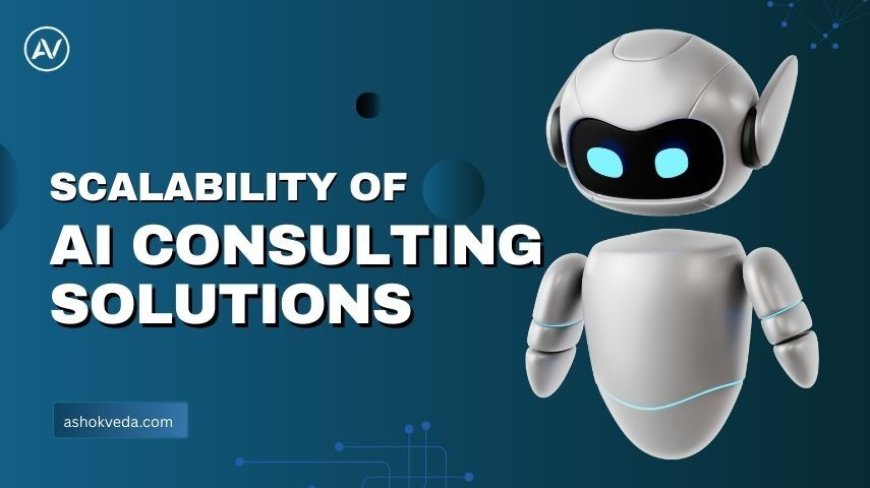
Artificial intelligence (AI) has transitioned from a niche technology to a cornerstone of business innovation across industries. According to a report by Morgan Stanley, widespread AI adoption could enhance the value of the U.S. stock market by up to $16 trillion, boosting the long-term valuation of the S&P 500 by about 30%. This surge in AI integration underscores the critical need for scalable AI solutions that can grow with businesses.
However, implementing AI at scale presents unique challenges. Organizations must navigate complexities such as data integration, infrastructure demands, and the need for specialized talent. This blog delves into the scalability of AI consulting solutions, examining the factors that influence scalability, the benefits of scalable AI, and best practices for successful implementation.
What Is Scalability in AI Consulting?
Scalability in AI consulting refers to the ability of AI solutions to handle increasing amounts of work or to be readily enlarged to accommodate growth. In the context of consulting, it involves designing AI systems that can adapt to the evolving needs of a business without compromising performance or requiring a complete redesign.
A scalable AI solution is characterized by:
-
Modular Architecture: Components that can be independently updated or replaced.
-
Cloud-Native Infrastructure: Utilization of cloud services to provide flexibility and resource optimization.
-
Automated Scaling: Systems that can adjust resources dynamically based on demand.
-
Interoperability: Ability to integrate seamlessly with existing business processes and systems.
Factors Influencing the Scalability of AI Consulting Solutions
Several key factors determine the scalability of AI solutions:
1. Data Infrastructure
A robust data infrastructure is foundational for scalable AI. Organizations must ensure that data is collected, stored, and processed efficiently. Implementing data lakes, data warehouses, and real-time data pipelines can facilitate the handling of large volumes of data, enabling AI systems to scale effectively.
2. Cloud Computing
Cloud platforms like Amazon Web Services (AWS), Microsoft Azure, and Google Cloud provide the necessary computational resources for scalable AI. These platforms offer elastic compute power, storage solutions, and machine learning services that can be scaled up or down based on demand, ensuring cost-efficiency and performance.
3. AI Model Architecture
The design of AI models plays a crucial role in scalability. Employing modular architectures allows for components to be updated or replaced without affecting the entire system. Additionally, using frameworks that support distributed computing can enhance the scalability of AI models.
4. Talent and Expertise
Having a team with the right skills is essential for building scalable AI solutions. This includes data scientists, machine learning engineers, and IT professionals who can design, implement, and maintain scalable AI systems. The scarcity of AI talent can pose challenges, but investing in training and development can mitigate this issue.
5. Governance and Compliance
As AI systems scale, ensuring compliance with regulations and ethical standards becomes more complex. Establishing governance frameworks that address data privacy, security, and ethical considerations is vital for maintaining trust and compliance as AI solutions expand.
Benefits of Scalable AI Consulting Solutions
Implementing scalable AI solutions offers numerous advantages:
-
Cost Efficiency: Scalable systems can optimize resource usage, reducing operational costs.
-
Flexibility: Businesses can adapt to changing demands without significant overhauls.
-
Improved Performance: Scalable AI can handle increased workloads, maintaining or enhancing performance levels.
-
Faster Time-to-Market: Modular and cloud-based solutions can accelerate deployment times.
-
Enhanced Innovation: Scalable platforms allow for the integration of new technologies and features as they become available.
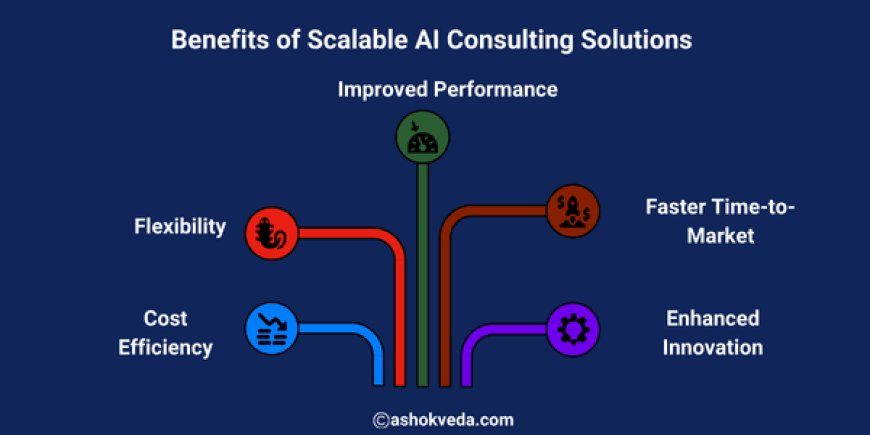
Challenges in Scaling AI Solutions
Despite the benefits, scaling AI solutions presents several challenges:
-
Data Silos: Disparate data sources can hinder the integration necessary for scalable AI.
-
Integration Complexity: Aligning AI systems with existing business processes and legacy systems can be complex.
-
Resource Management: Ensuring adequate computational resources without over-provisioning requires careful planning.
-
Security Concerns: As AI systems scale, so do the potential security vulnerabilities.
-
Ethical Implications: Scaling AI solutions must be done responsibly to avoid biases and ensure fairness.
Best Practices for Implementing Scalable AI Solutions
To overcome these challenges and successfully implement scalable AI solutions, consider the following best practices:
1. Define Clear Objectives
Before scaling, establish clear business objectives that the AI solution aims to achieve. This ensures that the AI system is aligned with the organization's goals and can be measured effectively.
2. Invest in Robust Data Infrastructure
Develop a centralized data architecture that facilitates easy access and integration of data from various sources. Implementing data governance policies ensures data quality and compliance.
3. Adopt Cloud-Native Technologies
Utilize cloud services that offer scalability, flexibility, and cost-efficiency. Cloud platforms provide the infrastructure necessary to support the dynamic needs of AI applications.
4. Design Modular AI Architectures
Create AI models with modular components that can be independently updated or replaced. This approach allows for easier maintenance and scalability.
5. Build a Skilled Team
Assemble a team with expertise in AI, data engineering, and cloud technologies. Continuous training and development are essential to keep up with the rapidly evolving AI landscape.
6. Establish Governance Frameworks
Implement governance structures that address data privacy, security, and ethical considerations. Regular audits and compliance checks are necessary to maintain trust and accountability.
The Future of Scalable AI Consulting Solutions
Looking ahead, the scalability of AI consulting solutions is poised to evolve with advancements in technology:
-
Agentic AI: The development of autonomous AI agents that can perform tasks without human intervention will necessitate scalable infrastructures to support their operations.
-
Edge Computing: Processing data closer to the source will reduce latency and bandwidth usage, enabling real-time AI applications.
-
AI-Driven Automation: Automating the scaling process itself will lead to more efficient and responsive AI systems.
-
Quantum Computing: Emerging quantum technologies could revolutionize AI capabilities, requiring new approaches to scalability.
Organizations that proactively adopt scalable AI solutions will be better positioned to leverage these advancements and maintain a competitive edge in the marketplace.
The scalability of AI consulting solutions is not merely a technical consideration but a strategic imperative for businesses aiming to thrive in the AI-driven future. By understanding the factors that influence scalability, recognizing the benefits and challenges, and adhering to best practices, organizations can implement AI solutions that grow with their needs. As AI continues to evolve, embracing scalable solutions will enable businesses to unlock new opportunities and drive sustained success.

























